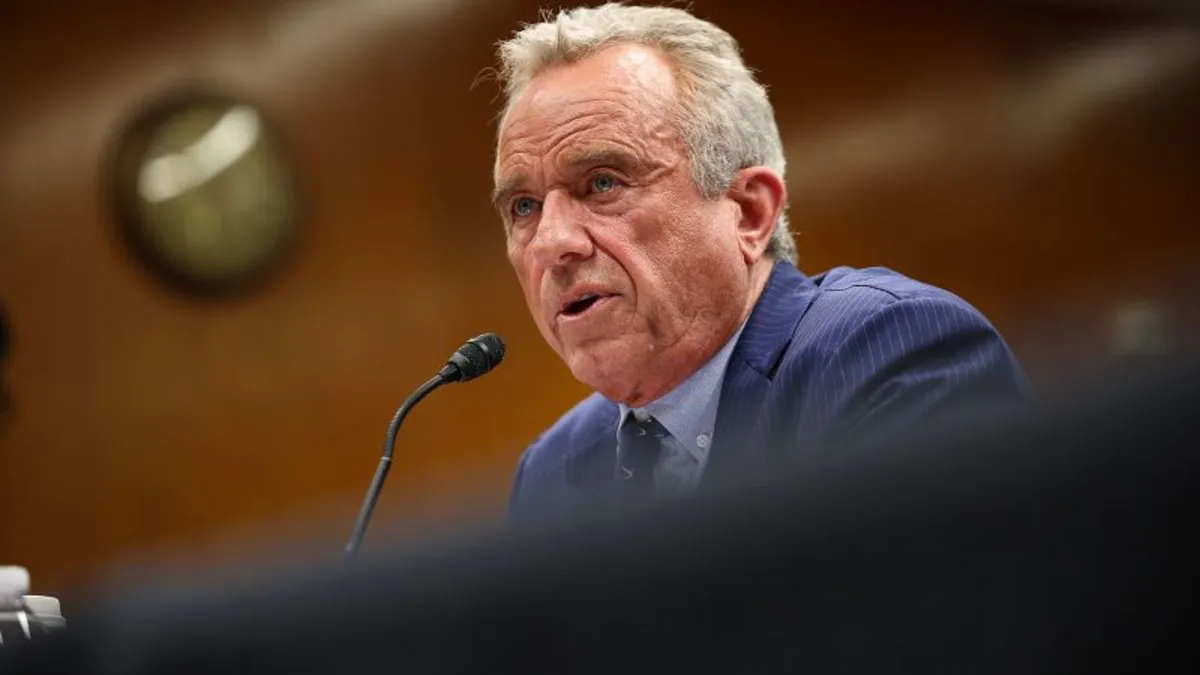
In a controversial move, US Health and Human Services Secretary Robert F. Kennedy Jr. announced on Monday the dismissal of the entire 17-member Advisory Committee on Immunization Practices (ACIP). This panel has historically played a vital role in guiding the federal government’s vaccine recommendations. Kennedy criticized the committee, stating it is “plagued with conflicts of interest,” a claim that has sparked significant debate among health experts and officials.
In an op-ed published in the Wall Street Journal, Kennedy revealed his decision to retire and replace the ACIP, which advises the US Centers for Disease Control and Prevention (CDC) on vaccination schedules and required immunization coverage. The HHS secretary holds the authority to appoint and dismiss ACIP members, who typically serve four-year terms. However, Kennedy's decision to remove the entire panel prematurely is an unprecedented action that is raising eyebrows.
Kennedy argued that many current ACIP members were “last-minute appointees” of the Biden administration. He expressed concern that if the existing members were not removed, the Trump administration would not be able to appoint a majority of new members until 2028. This has raised questions regarding the transparency and integrity of the committee's recommendations.
Following the announcement, a recently dismissed ACIP member expressed shock at the abrupt decision, stating, “I’ve never seen anything this damaging to public health happen in my lifetime.” This adviser emphasized that the ACIP has one of the most rigorous conflict of interest policies and described Kennedy’s allegations as baseless. The member noted that the dismissal could fundamentally destabilize vaccination efforts across America.
Kennedy's stance on vaccines has been controversial, as he has long been a critic of federal vaccine policy and has raised concerns about vaccine safety. This latest move has prompted reactions from various health leaders. Republican Senator Bill Cassidy of Louisiana expressed concern that the new ACIP appointments may lack the necessary expertise in vaccines, stating, “Of course, now the fear is that the ACIP will be filled up with people who know nothing about vaccines except suspicion.”
The CDC's ACIP is scheduled to meet from June 25-27 to discuss vaccinations for various diseases, including Covid-19, RSV, influenza, HPV, and meningococcal disease. Despite the recent shake-up, the meeting will proceed, leaving the agency with approximately two weeks to fill the advisory panel. Experts are voicing concerns that appointing members hastily may compromise the vetting process and transparency regarding conflicts of interest.
Legal expert Dorit Reiss from UC Law San Francisco emphasized that such rapid appointments “will not restore trust in vaccines” and could undermine public confidence in the vaccination process.
Many health leaders have come out in defense of the ACIP, highlighting its longstanding role in guiding US health policies. Dr. Richard Besser, president of the Robert Wood Johnson Foundation, pointed out that the committee has provided invaluable guidance for over 60 years and expressed concern that Kennedy's actions could hinder healthcare providers' ability to care for their patients effectively.
Dr. Bruce A. Scott, president of the American Medical Association, stated that Kennedy’s decision undermines trust in a transparent process that has saved countless lives, especially during ongoing public health challenges like measles outbreaks. He warned that this move could further fuel the spread of vaccine-preventable illnesses.
Other health professionals, including Dr. Susan Kressly of the American Academy of Pediatrics, shared similar sentiments, highlighting that the dismissals could create confusion for families regarding vaccination recommendations. Dr. Tina Tan, president of the Infectious Diseases Society of America, called Kennedy's claims about the integrity of ACIP “completely unfounded” and warned of the significant negative impact this could have on public health.
The impact of Kennedy's decision on the future of vaccine oversight is still uncertain. Some experts suggest that health providers may seek to create an alternative advisory committee to ensure trust in vaccination schedules. The Vaccine Integrity Project, launched earlier this year, aims to address concerns about the safety of vaccines and may consider the establishment of a new independent body to evaluate vaccine safety and effectiveness.
Dr. Mike Osterholm, founder of the Vaccine Integrity Project, referred to the dismissal of the ACIP as “one of the darkest days in modern public health,” criticizing Kennedy for showing a lack of interest in science and public health. The unfolding situation underscores a critical moment for vaccination policy in the United States and the need for continued dialogue around vaccine safety and efficacy.